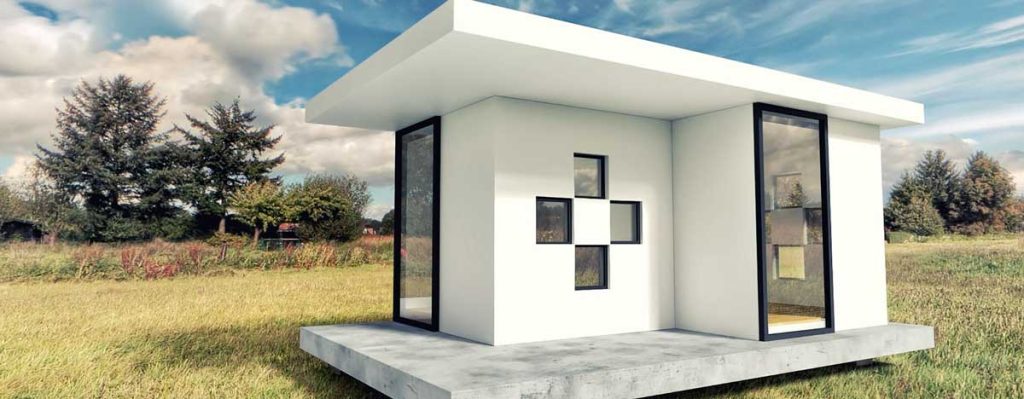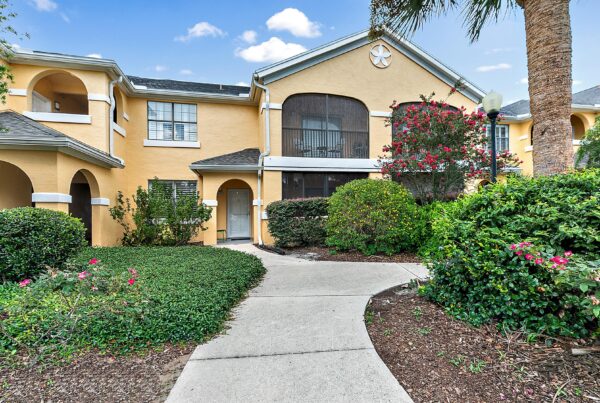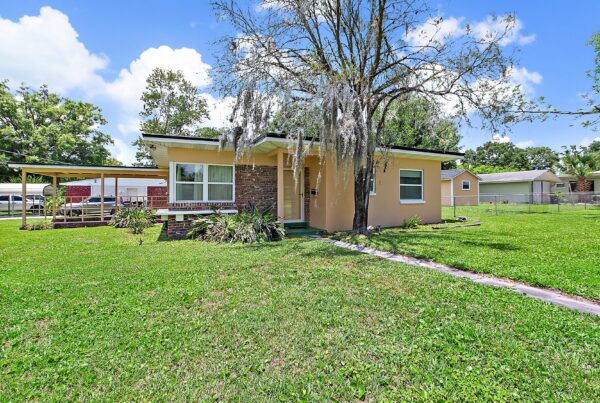
Inevitably when you’re watching one of those tiny house reality shows (we know you know which ones we’re talking about, HGTV!), a buyer who’s looking at a tiny house says something along the lines of, “Well, there isn’t much space/storage room, is there?”
That’s a given when it comes to a tiny house. The clue is in the name, after all — a tiny house just isn’t going to have a lot of room, especially for storage space, and especially for the little extras that can make your house feel bigger.
But thanks to modern design, there are a lot of ways you can maximize space in a tiny home without sacrificing any of the attributes that make it attractive — or tiny.
Invest in Lots of Windows
One of the best ways to make any room feel bigger is by lighting it up, wall to wall, corner to corner. This is usually easiest to do by adding windows, which can be especially effective when placed high up toward the ceiling in a tiny house, leaving room on the walls.
More windows do take up space, of course, but if living somewhere that feels light and airy is important to you, then windows are the very best way to accomplish that goal.
Or Floor-to-Ceiling Shelving
Of course, you’ll want to think strategically about your tiny house’s layout because with every decision you make to add something, you’ll probably be forgoing something else you might like. So instead of a lofty window, maybe you’d rather install a wall of shelving where you can stash books, plates, clothes, whatever you want to stash.
Put shelves or hooks on your doors
Doors that swing open and shut aren’t always the best idea in a tiny house (more on other options below), but if you really love that aesthetic, then you can still maximize space by adding some storage options to those doors. Hooks can work on either side of the door, and shelves can be a good option for the side of the door that swings away from the room (so you don’t end up smashing the shelves on a wall). They can be a storage spot for bags or coats or whatever you might have needed in a coat closet in a larger home.
Use space outside
Especially if the weather is mostly nice where you live, investing in a big deck or porch where you can eat, set the kids up with homework, or just settle down and read can make living in your tiny home much more, well, livable. Some tiny homes even have an outdoor cooking space for grilling or baking outside, but if you don’t want to go that far, seating for several people and maybe a hammock can go a long way toward making you feel like your house is richer in square footage than it actually is.
Let there be skylights
When your wall space is already taken, one excellent way to add light to space without adding windows is through skylights. After all, you probably aren’t going to hang shelving from a sloped roof; it’s real estate that you can’t really do much with except for let in some light, so if you feel like windows just aren’t cutting it, consider installing a skylight or two.
Lose the Walls Entirely
Open spaces tend to look bigger than walled-off spaces — consider the trend of having a kitchen/dining/living room space that flows into each other; it makes all three areas feel more spacious than they really are. Even though walls only take up inches in reality, they seem to have a disproportionate effect psychologically.
A totally open tiny house might not be feasible for you, and there are definitely other options if you have to have walls or room dividers of some kind. But if you can, open up as much space as possible to give yourself the illusion of a bigger room.
Or Use Lots of Sliding Doors or Curtains
If you must have divided space, hanging curtains or installing sliding doors can be an excellent alternative to a wall, which takes up more room than either one. Plus, with a curtain or sliding door, you can keep the space open when you want to feel like your tiny house has more square footage than it really does, then draw the curtains or slide the door shut when privacy is more important than airiness and space.
Add a loft
Most tiny homes don’t have room for two full stories, but a common solution to the issue of space is found in lofted beds or bedrooms. Aloft in a tiny house can often accommodate a queen-sized or even king-sized mattress, and when you’re asleep, it doesn’t matter if your body is physically close to the ceiling; you won’t notice at all. Some people even sleep better in a space that feels cozier and more enclosed, once they get used to it.
If you can add a loft to your tiny house and use it for a bedroom or storage space, you’ll be freeing up that much more floor space and giving your place a little boost in terms of feeling bigger than it is.
Turn under-stair space into awesome storage
Not all tiny homes have stairs, but for those that do, there’s usually some lucrative storage space to be found underneath the stairs. You could do like the bigger houses do and use an under-stair closet, but you can also get really creative in a tiny home: Maybe you can create small cubbies with drawers or baskets under the stairs, or perhaps that space will be where you put your bookshelves. Whatever you do, don’t neglect that prime real estate under the stairs — it’s not just for pre-Hogwarts Harry Potter anymore.
Use Mirrors Wisely
Wall space is usually at a premium in a tiny house, but one very intelligent way to use that space is with mirrors, even if they’re serving as a backdrop to a shelf. While windows are one of the best ways to let more light in, mirrors reflect and bounce back the light that’s there, plus they can make your tiny home feel twice as big when they’re placed correctly.
In a tiny house, a wall mirror probably makes more sense than a floor mirror. You can find or get mirrors cut that exactly fit your wall and reflect the entire house back at you — don’t be surprised if you feel like you’re living in a mansion once they’re installed.
Don’t Be Afraid to Max Out One Room (but Make It Your Favorite)
People like tiny houses because they’re drawn to the minimalist lifestyle, naturally. But most of us also have a “favorite” room in the house, one where we spend most of our time and energy, where we feel like we’re at our very best. Perhaps it’s the kitchen, or maybe you’re more of a bedroom dweller, or it could be the dining room where your kids sit and do their homework.
Whatever the case, don’t hesitate to go all-out with one room in your tiny house. This really should be just one room, and maybe it’s a space that you can take partially or mostly outside, like the living room or dining room. Once you take any tendencies toward maxing out one room beyond that one room, you’ll find your tiny house really won’t support it … but there’s no harm in giving yourself one room where you feel like you aren’t making any sacrifices of comfort for space.
Don’t Box in Your Storage
Optical illusions are a fabulous way to make your tiny house feel bigger. Even though you might not actually be saving space, using doorless cabinets is one way to help maximize the space in your kitchen (especially if you hang a mirror behind those plates or appliances). On a similar note, using a hanging rod for a closet instead of building an actual closet with a door does actually save space while also making the room appear bigger because you can see around the “closet” to the walls.
Small Appliances Can Slide in and Out on Drawers
The kitchen is one place where many people in tiny houses end up making a lot of sacrifices. Storing small appliances can feel especially like a burden, but there are some interesting solutions by way of sliding drawers that let you slide out an appliance when you’re using it and tuck it back away and out of sight when you’re finished. Toaster ovens, coffee machines, and other items you use every day but don’t have the counter space to keep out and ready can still be turned on quickly and put to good use before you slide them back home.
Consider a Breakfast Bar
Instead of a dining area inside, one nice solution for tiny homes is to build a breakfast bar that connects to your kitchen counter. It’s just a little bit of extra space, but having somewhere to sit and drink your coffee or tea while getting ready for the day — or winding down with a beer or glass of wine at night — can make all the difference in making a place feel like “home.”
Put Lights Under Shelves
Natural light is all well and good when the sun is out, but when it’s hiding or down for the night, you might need to boost the light in your tiny home using artificial means like actual light bulbs. Not all light fixtures are maximized for tiny home use, but you can often find some good places to put light when you look underneath shelves, drawers, kitchen cabinets, and other storage spaces. You can get some nice, bright lights for relatively cheap and save yourself the headache of figuring out what kind of lamp will be small yet powerful enough to suit your needs.
Look Underneath for Storage
Another time when it pays to “look underneath” is when you’re seeking out storage space. You might be pleasantly surprised by how much storage is available in your tiny house when you can think creatively about it. Can you hang some baskets underneath your sink to hold cleaning supplies? Could you add drawers under your bed or sofa where you can keep extra blankets, bedding, or clothes? Some creative tiny-house enthusiasts are even able to find storage space underneath bathtubs — so crawl around for a little while and see whether you can identify any storage opportunities that you’ve been quite literally overlooking.
Murphy Beds Are Back
If you haven’t lofted your bed, then a murphy bed — a bed that folds out from a wall — can be another excellent option for a tiny house. Many areas offer specialists who can make custom murphy beds that look like a desk or a table when they’re folded up, then unfold into a spacious and comfortable bed when it’s time to sleep. This way you can make your bedroom multitask as a dining room or study area, only getting out of your bed (which, let’s face it, is probably one of the biggest items of furniture most of us own) when it’s time to use it.
And Fold-Out Desks and Tables Are In
Beds aren’t the only items of furniture to get the fold-out treatment. Fold-out tables and desks can work very nicely in tiny homes with limited space, and they work exactly as it sounds: You fold them out when you’re ready to use them, then tuck them away when you’re all finished until you need them again.
By being conscious of the space you’re using in your tiny home and doing your best to help every square foot multitask depending on the time of day, you’ll find that you have a lot more room than you thought you would in the tiny home of your dreams.





